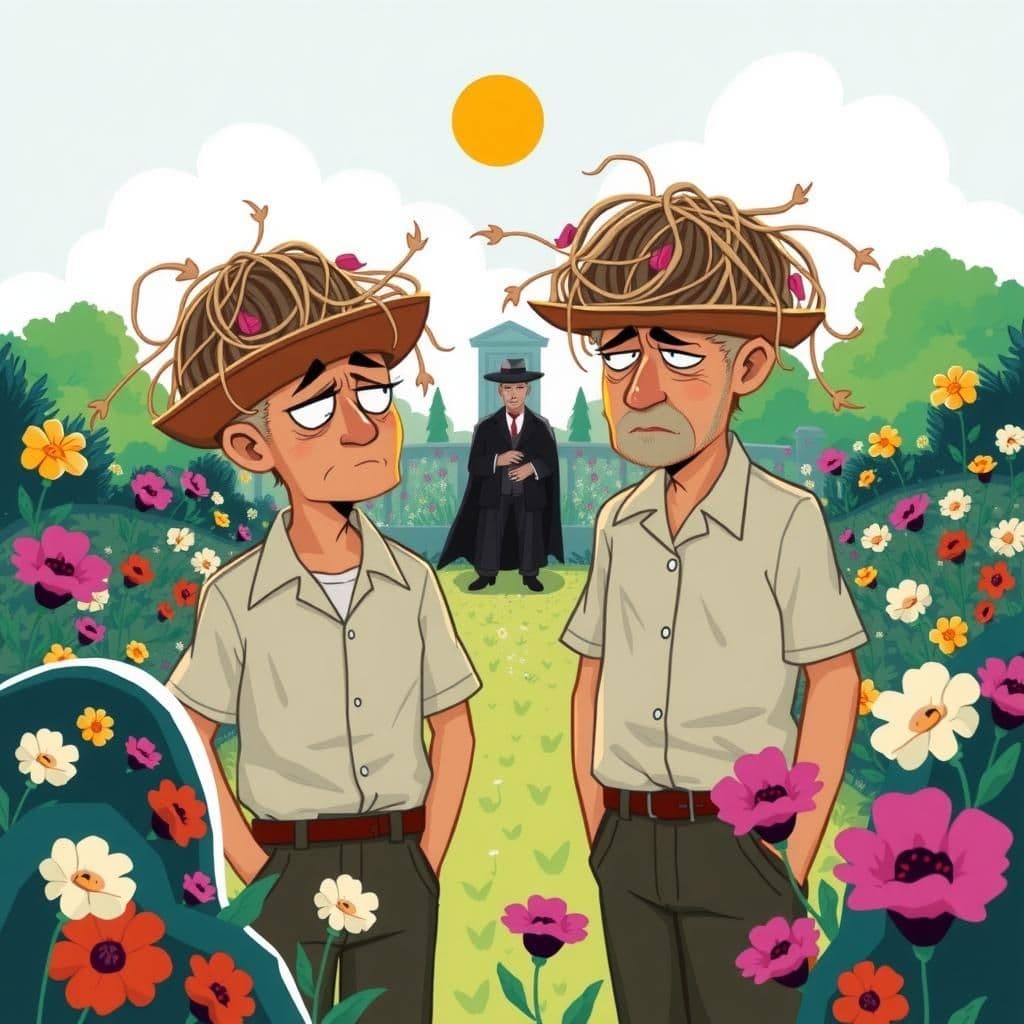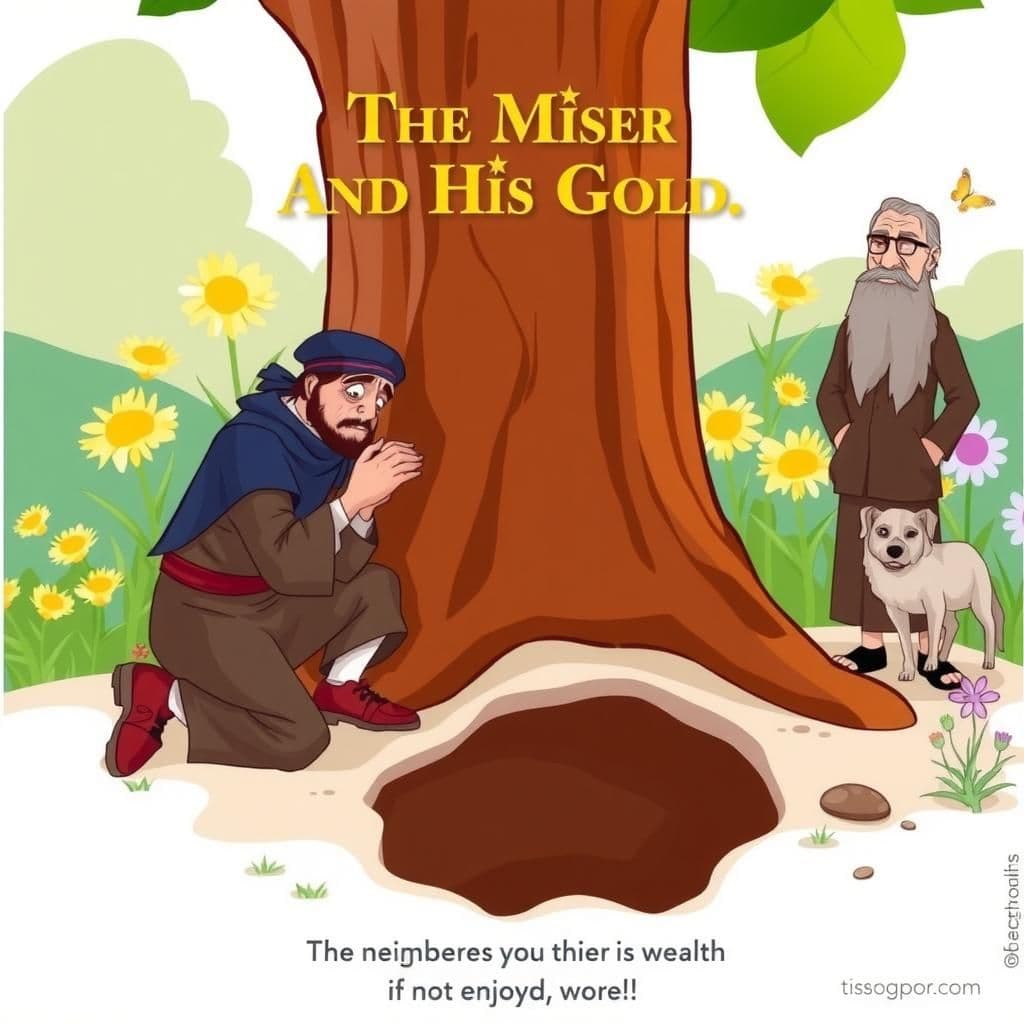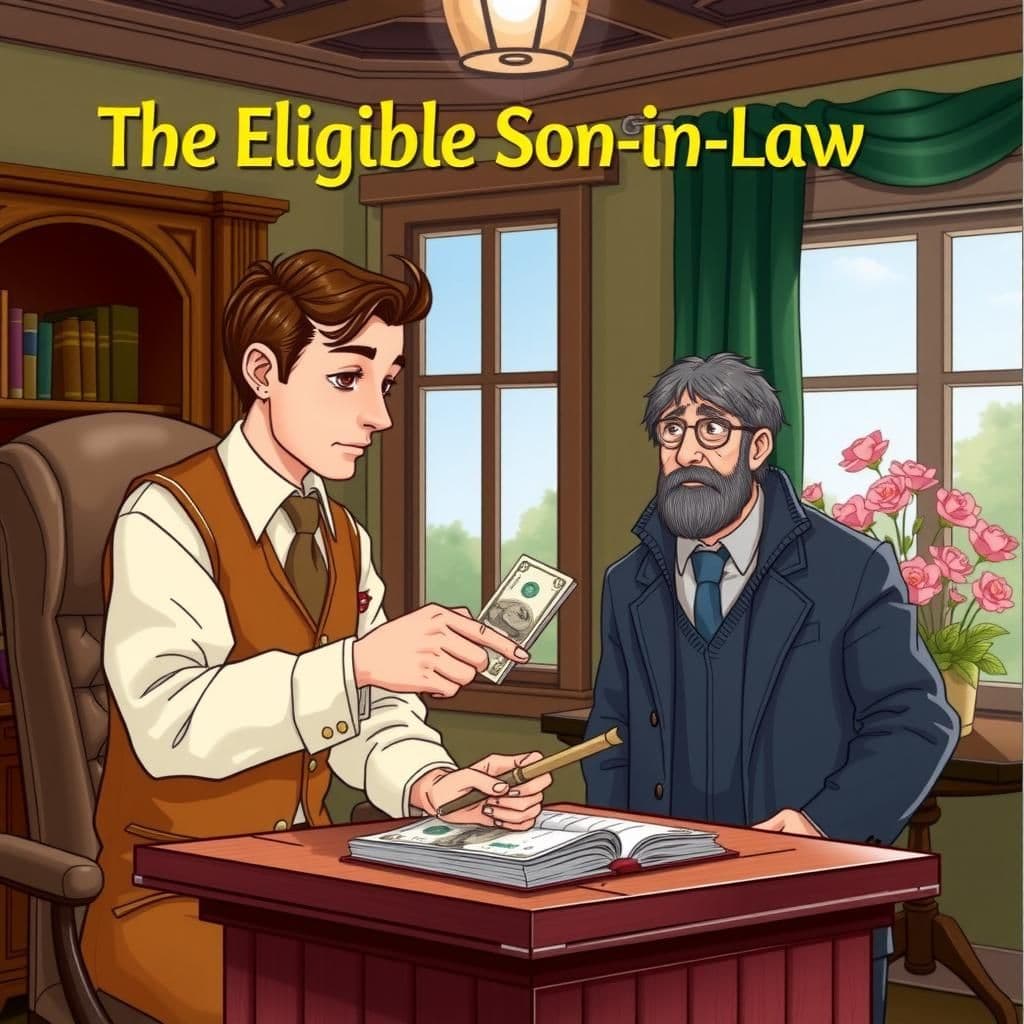The Mourning Brothers

Story Summary
In the short story "The Mourning Brothers," an Old Man, sensing his death, challenges his sons to prove their sorrow by wearing weeds on their hats, promising his fortune to the one who endures the longest. After years of stubbornness, they agree to share the inheritance, only to discover that an Executor has taken control of the estate, leaving them with nothing. This tale, rich in folklore and moral lessons, highlights the consequences of hypocrisy and obstinacy, making it one of the best moral stories in short story collections.
Click to reveal the moral of the story
Hypocrisy and stubbornness can lead to self-inflicted loss and regret.
Historical Context
This story reflects themes common in fables and moral tales, particularly those found in Aesop's Fables, which often explore human nature, familial relationships, and the consequences of actions. The narrative highlights the futility of insincere displays of grief and the complexities of inheritance, resonating with cultural traditions that emphasize the moral lessons gleaned from familial disputes and the value of genuine respect. Variations of such themes appear in various cultures, including similar tales in folk literature that critique hypocrisy and the folly of stubbornness.
Our Editors Opinion
This fable serves as a poignant reminder of the dangers of posthumous respect and the futility of competing for approval through empty gestures. In modern life, we often see similar dynamics in family inheritance disputes, where relatives may feign loyalty or manipulate situations for personal gain, ultimately leading to fractured relationships and unintended consequences. For instance, siblings might engage in a bitter rivalry over their parents' estate, pretending to honor their parents' memory, only to realize that their actions have estranged them from one another, much like the sons in the story.
You May Also Like

The Miser and His Gold
A Miser hides his gold at the foot of a tree, visiting it regularly to gloat over his wealth but never using it, illustrating a classic moral lesson. When a robber steals the gold, the Miser laments its loss, only to be reminded by a neighbor that since he never utilized the treasure, he might as well simply look at the empty hole instead. This tale, one of the top 10 moral stories, teaches that wealth is worthless if not put to use.

The Ingenious Blackmailer
An inventor presents a rifle that discharges lightning to a king, seeking a million dollars for the secret, but the king becomes suspicious of his intentions, recognizing the potential for war and its costs. When the inventor insists on the glory and spoils of conflict, the king, valuing integrity over greed, ultimately orders the inventor's execution for blackmailing him. This story serves as a motivational tale with a moral, illustrating the dangers of ambition and the importance of ethical considerations in pursuit of power.

The Eligible Son-in-Law
In "The Eligible Son-in-Law," a pious banker is approached by a shabby man seeking a loan of one hundred thousand dollars, claiming he will soon marry the banker's daughter, presenting this as the best security. The banker, unable to see the flaw in this scheme of mutual benefit, agrees to the loan, illustrating the themes often found in short moral tales that emphasize the importance of discernment and the potential pitfalls of blind trust. This folklore-like story serves as a motivational tale for personal growth, reminding readers to critically assess promises that seem too good to be true.
Other names for this story
Brothers of Grief, The Weeds of Regret, Inheritance of Sorrow, The Last Will of the Old Man, Hat of Mourning, Legacy of Hypocrisy, The Price of Grieving, Brothers in Mourning
Did You Know?
This story illustrates the futility of seeking respect through artificial displays of mourning, highlighting how genuine emotions and familial bonds can be overshadowed by competition and greed. Ultimately, it serves as a cautionary tale about the consequences of hypocrisy and stubbornness in human relationships.
Subscribe to Daily Stories
Get a new moral story in your inbox every day.